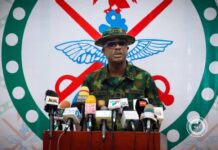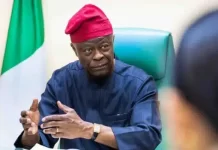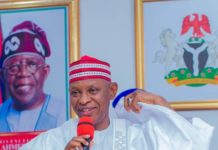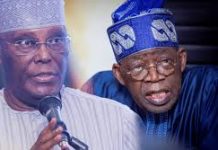Festus Keyamo, spokesperson for President-elect Bola Tinubu, says state governors and local government chairmen are responsible for multidimensional poverty in Nigeria.
A Twitter user, @NigerTrump confronted Mr Keyamo with the fact that the Buhari regime in which he is serving plunged 130 million Nigerians into multidimensional poverty.
“Thanks for your comments. For the first time, let me educate you and millions of Nigerians about this ‘multidimensional poverty’ that the opposition has been harping on to the deceive Nigerians. It was our government that consciously commissioned that study and DELIBERATELY… https://t.co/G1v6eJ7703.”
Mr Keyamo, in a tweet on Saturday, stated that the study that shows that over 130 million Nigerians live in multidimensional poverty was sponsored by Buhari regime but it is the constiturional responsibility of State governors and local government.
“It was our government that consciously commissioned that study (on multidimensional poverty in Nigeria) and DELIBERATELY released the results. Why? Because, ‘multidimensional’ poverty relates to people not having access to the basic necessities of life like clean water, primary health care, primary education, accessible rural roads for commerce, etc.
“However, these are outside the constitutional obligations of the Federal Government. They are the responsibilities of sub-national governments like State and local governments,” Mr Keyamo said.
By Mr Keyamo’s stance all 36 state governors and 774 local government chairmen are to be blamed for increasing multidimensional poverty in the country.
According to Keyamo, the report was published in order for citizens to demand more accountability from those levels of government and to highlight the fact that tackling poverty needs the cooperation of different stakeholders and not just the responsibility of the Federal Government.
Highlights of the 2022 Multidimensional Poverty Index survey by the Nigerian Bureau of Statistics reveal that 63 per cent of persons living in Nigeria (133 million people) are multidimensionally poor. The national MPI is 0.257, indicating that poor people in Nigeria experience just over one-quarter of all possible deprivations.
Before now, Mr Buhari, in his 2022 Independence Day speech, admitted that youth “unemployment and poverty” have remained high regardless of efforts by his regime.
Nigeria, in 2020, displaced India to be the world’s poverty capital. Under Mr Buhari’s watch, Nigeria’s debt profile hit N46. 25 trillion and is projected to hit N77 trillion before Mr Buhari leaves office in May.












































